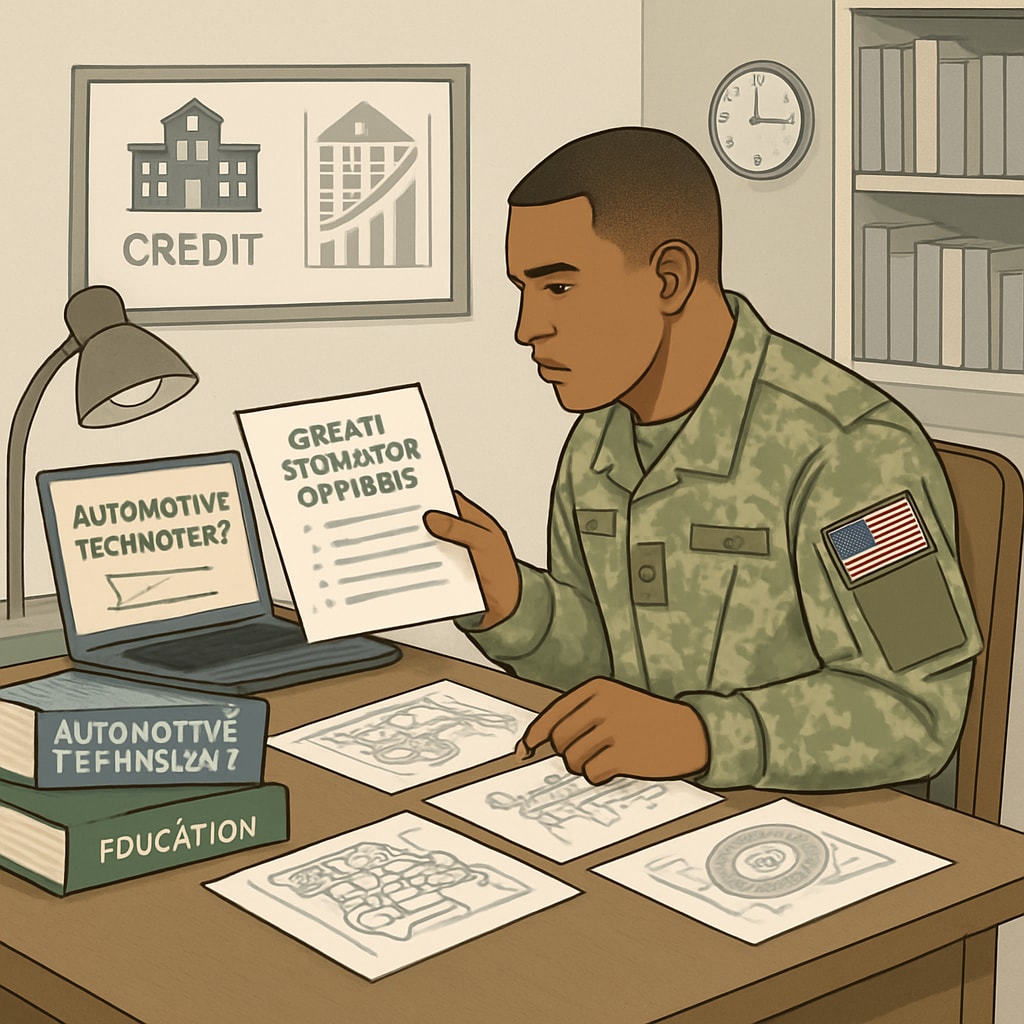Military personnel often face the dual challenge of advancing their careers while ensuring their children succeed in K12 education. For those with an associate degree in automotive technology, transitioning to a bachelor’s degree can open new career paths without compromising their family’s educational needs. This article explores strategies for leveraging credit transfer systems, balancing professional growth with family responsibilities, and utilizing community resources to achieve academic and career goals.
Understanding Credit Transfer Systems for Automotive Technology Degrees
One of the most efficient ways to transition from an associate degree in automotive technology to a bachelor’s degree is through credit transfer systems. These systems allow students to apply previously earned credits toward higher degree programs, saving both time and resources. Many universities and colleges have partnerships with military organizations to facilitate this process, offering tailored programs that recognize the unique skills and experiences gained during service.
- Check eligibility requirements for credit transfer at your chosen institution.
- Consult academic advisors who specialize in military education benefits.
- Research schools offering programs in automotive technology or related fields, such as mechanical engineering.

Balancing Career Advancement and Family Education
Military families often face frequent relocations, making K12 education for children a complex challenge. Parents pursuing a bachelor’s degree in automotive technology must find ways to balance their own academic workload with their children’s educational needs. Here are some strategies:
- Utilize online degree programs that offer flexible schedules.
- Explore military-friendly schools with robust support systems for families.
- Engage local and online community resources, such as tutoring services and extracurricular programs, to support K12 learning.
In addition, communication within the family is key. Discussing educational goals and creating a structured routine can help children understand the importance of balancing responsibilities. Schools that cater to military families often have dedicated counselors to assist children in adapting to new environments.

Leveraging Community Resources for Success
Community resources play a crucial role in assisting military personnel during their educational journey. Many organizations offer scholarships, grants, and mentorship programs specifically designed for veterans and active-duty service members:
- GI Bill Benefits: Provides financial support for tuition and housing.
- National Guard Education Programs: Offers tuition assistance for degree programs.
- Military OneSource: A hub for educational resources and family support services.
Additionally, military-friendly schools often provide career counseling and networking opportunities, ensuring that degree programs align with future career goals. For those pursuing automotive technology, internships and industry certifications can add value to academic achievements, making graduates more competitive in the job market.
Conclusion: Empowering Military Families Through Education
Pursuing a bachelor’s degree in automotive technology while navigating military life is achievable with proper planning and resources. Credit transfer systems, flexible educational programs, and community support can help military personnel advance their careers without compromising their family’s educational needs. By leveraging these tools, military families can achieve academic and professional success while fostering strong foundations for their children’s future.
Readability guidance: This article uses concise paragraphs, lists for key points, and emphasizes practical advice to ensure clarity and engagement. Transition words such as “in addition” and “however” are used throughout to maintain logical flow.


